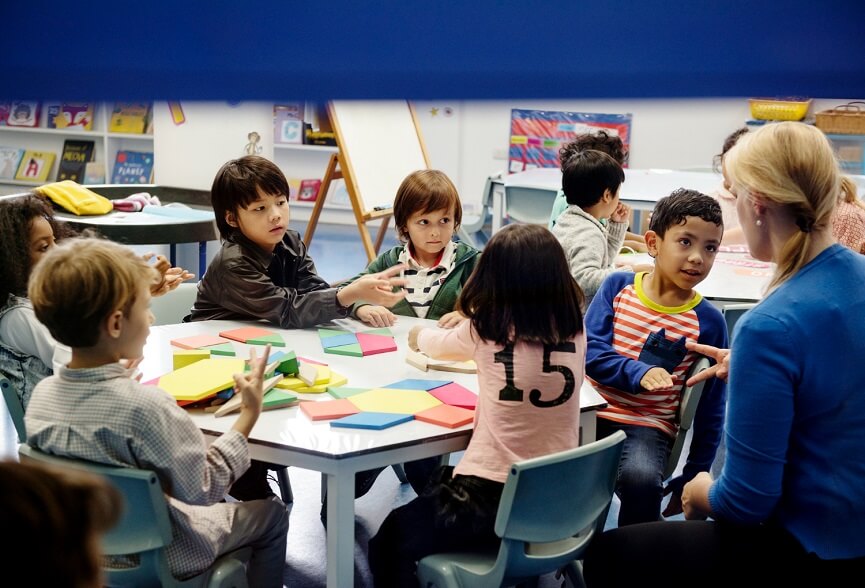Discipline Your Child: A Guide to Nurturing Responsibility and Independence in Your Child
By Billabong July 4, 2024

Discipline means helping your child develop a series of inner control mechanisms that last a lifetime. Initially, your child must be taught how to choose between right and wrong. Subsequently, he or she should be taught how to differentiate between what is important or necessary and what is harmful.
Discipline is the fruit of a nurturing parent-child relationship. Child discipline can easily be implemented by first building the right relationship with your child more than by simply using the right technique.
To discipline a child does not necessarily mean to punish him or her. The common question which parent ask or have it. When should discipline really begin? It is very important to begin early. The more you delay it, the more difficult it gets.
In this blog, we will discuss why it is important to discipline your child and how discipline guides your child’s actions and teaches them important skills for life.
Why is It Important to Discipline Your Child?
The main function of child discipline is to teach the child to accept things and to help direct his energy into useful and socially acceptable channels. Here are some benefits of child discipline:
- Discipline teaches your child to behave appropriately at the right time in the right place.
- Discipline also teaches your child to develop good habits in life.
- Discipline teaches your child to harmonise study, play, and extra-curricular activities.
- Discipline also teaches your child to identify his or priorities at a particular stage in his or her growth process.
You have to understand that discipline is a process. It is not something that can be achieved overnight. It is a very slow process. It has to be continuous.
Most parents have a tendency to lose their temper when their child does not want to follow instructions. Parents face difficulties in explaining discipline to a child as, at times, they refuse to listen to any reasons.
Let’s Learn how to set discipline at home:
- Establish a routine: A routine will help your child in understanding the needs of following schedule. It will also teach him/her the value of time. However, there should also be room for some flexibility.
- Respectful: One of the crucial steps in disciplining a child is to teach a child how to respect people. Respect is always about taking someone’s needs and wishes into consideration. It is very important for your child to respect people and be respected in return.
- Empathy: it is important for your child to emphasise because it gives him or her a sense of connection. When there is empathy, there is understanding and compassion. It is important for a parent to develop empathy in children so that they think through things before they act on anything.
- Communication: the fourth step in discipling a child is to teach a child how to communicate. This is a very important skill which every child must learn. Let your child know that he or she can talk to you about anything and everything. Assure him or her that you will not judge if the conversation directly contradicts your beliefs.
Problems Faced by Parents while Disciplining Children
Let’s look at why parents sometimes find it difficult to discipline their children.
- Finding the right approach
Child discipline can often seem like a tricky task where you are trying to find the right balance.
If discipline is too severe, then it can harm a child’s confidence. On the other hand, if it’s too lenient, then the child may get too spoiled. Due to lack of time, sometimes parents find it difficult to strike a balanced approach.
- Age-appropriate strategies: Many parents lack knowledge about child development, and consequently, they struggle to choose age-appropriate strategies.
Without this knowledge, they, at times, end up using strategies that are either too advanced or too simplistic. This leads to ineffective discipline of the child.
- External factors: School and friends greatly influence how a child behaves. If a child’s friends behave badly then it might rub off on the child. This can make it extremely difficult for a parent to guide their child’s behaviour.
- Raising children in digital age: A major challenge for parents is how to explain discipline to a child who spends too much time on his/her phone or tablets. Many parents struggle to set limits because their children are often distracted with digital devices.
- Parental stress and fatigue: When parents are tired, they may find it hard to discipline their children the same way every time. Exhausted parents may resort to quick fixes like yelling or punishment rather than employing long-term strategies.
The most effective child discipline technique will be as unique as your child is. Clear communication, respectful towards each other’s needs, and age-appropriate strategies are some of the essential elements.
However, these methods need to be adjusted according to your child’s needs. It may seem challenging but understanding the benefits of child discipline can make those moments a bit easier.
In conclusion, understanding how to discipline a child is a long journey which will require a lot of patience. It’s about guiding them through their mistakes and not penalising them for it.
The art of discipline is not about laying down certain rules and regulations. It is about nurturing children’s growth so that they become independent and caring individuals. Moreover, it shapes their future habits and ability to handle challenges.
Discipline plays an important role in the social and emotional development of the child. Discussion about discipline should begin early, before parents start to experience difficulties.
If you are looking for a school that supports the overall growth of the students and helps cultivate good values in them, you must not miss out on Billabong High International School. Contact us and and enrol your child today!
Latest Blogs
- Understanding the Science behind the Day and Night Cycle
- Toddler Tantrums: Understanding and Tackling Toddler Outbursts
- Tips to attempt ICSE Class 10 Board Exam – Maths
- The Role of Yoga in Creating a Balanced Student Life
- School Life: A Journey of Growth, Learning, and Transformation






